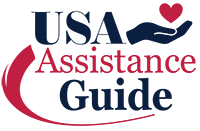If recent events have you struggling to pay your mortgage, the CARES Act provides you with a couple options you can take advantage of to help ease the burden. Here are some of the things you should know about temporary mortgage relief.
Forclosure Extension
The CARES Act provides homeowners with a bit of protection against foreclosure during these financially stressful times. According to the Consumer Finance Protection Bureau website (consumerfinance.gov), “The CARES Act and the guidance from the GSEs, the FHA, the VA, and the USDA, prohibit lenders and servicers from beginning a judicial or non-judicial foreclosure against you, or from finalizing a foreclosure judgment or sale. This protection began on March 18, 2020, and extends through at least December 31, 2020.” This initial protection is nearing an end. If you need additional time to get your finances in order, there are extensions you can apply for.
Forbearance
If you have been affected financially by the Covid-19 pandemic, you can apply for an extra 180 day extension on impending foreclosure. The above mentioned article goes on to say, “You must contact your loan servicer to request this forbearance. There will be no additional fees, penalties or additional interest (beyond scheduled amounts) added to your account. You do not need to submit additional documentation to qualify other than your claim to have a pandemic-related financial hardship. Some federally backed mortgages have a December 31, 2020 deadline for requesting an initial forbearance. If you are facing financial hardships, you should ask for forbearance immediately, so you don’t lose that right.”
Forbearance can be either a reduced mortgage payment if you’re having trouble paying the full amount, or no payment for a short time while you get back on your feet. If you’re interested in learning more about forbearance, it’s important to get started right away. It takes a while to process the paperwork especially given the influx of requests lenders have received as of late. Start the process now in order to guarantee protection from foreclosure.
Payback
It’s important to understand that forbearance doesn’t mean erased. It’s more of a deferment. Whatever payments you aren’t making now will still have to be made up over time. However, as previously mentioned, there are no penalties or fees for extending the forbearance period. Reach out to your lender. They will provide you with a number of options for repayment once your forbearance period is finished. Most offer payment plans that can be paid over time. The repayment structure primarily depends on the type of loan you have.
If you’re struggling to pay your mortgage, reach out to your lender. They are extremely knowledgeable in ways to help you during this financially stressful time. They’ll be able to walk you through the process to ensure you’re finding the avenues best for your unique situation. Find out what your options are to prevent your home from going into foreclosure.
